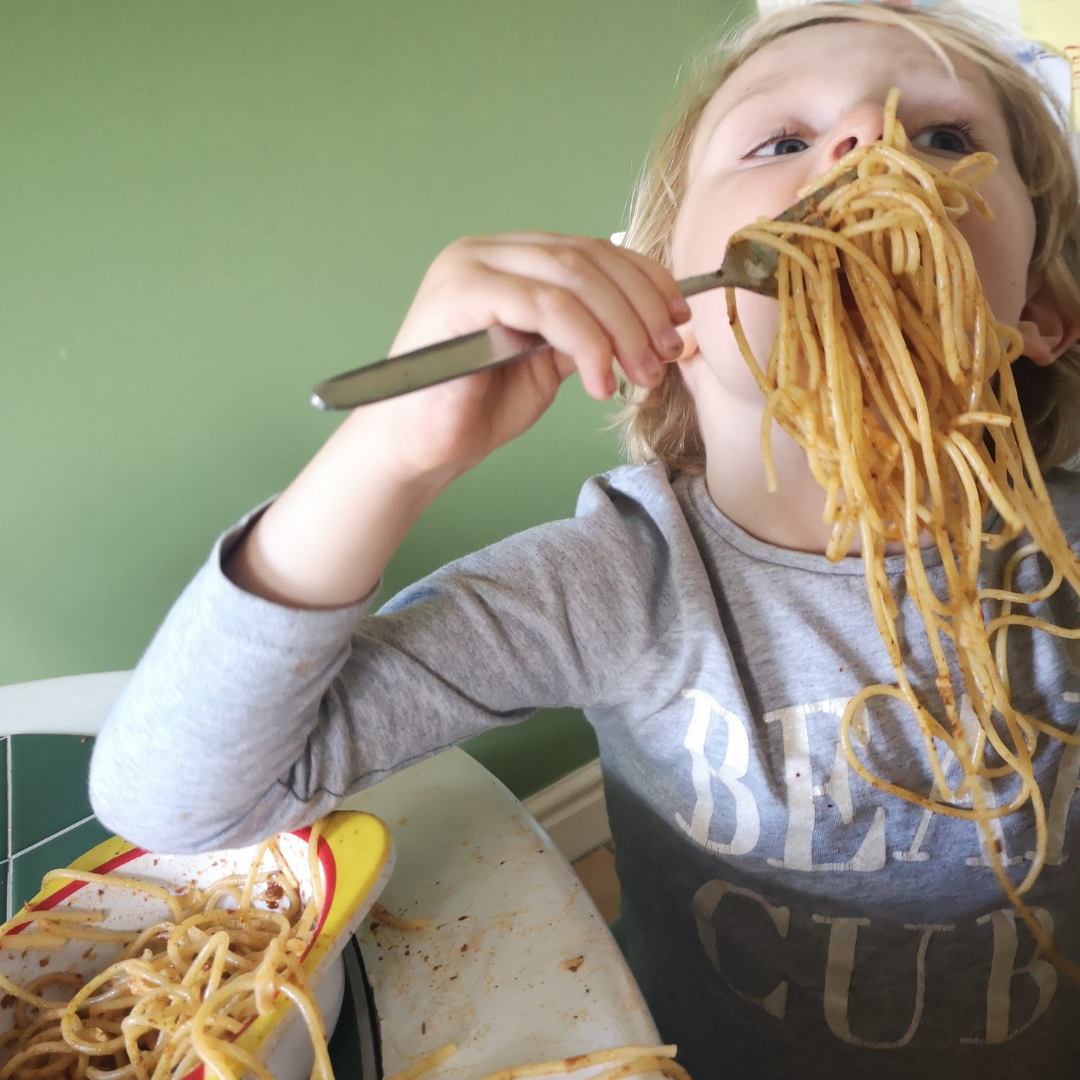Mealtime adventures are better with Bibado! Let our award-winning products make a difference to your weaning journey.
 Shop Now
Shop Now


Fussy eating help & guidance from a mummy with 12 Years of experience.


I remember when Cerys was small and extremely fussy, I would worry tirelessly over her refusal to eat almost everything I offered her. I tried every trick in the book, from reward charts to straight out there begging & pleading with her to eat. It was no use and every angle we went at it from, somewhere a few days down the line our method would fail. And actually, made the fussiness worse.
Around that time, I was doing teacher training & spent hours reading child psychology books. I discovered some interesting information around why children experience periods of fussy eating.
This knowledge totally changed the way I was tackling Cerys’ fussy eating and from that point I started trailing a whole new approach.
For any parent, fussy eating is tiring, worrying & frustrating, our children are able to pick up on these emotions and that over time begins to filter into them. Mealtimes then become a time that the whole family start to dread & resent. That dread & resentment is what our children then associate with food. Thus, making fussiness worse.
Its easy for parents to resort to bribing their children to eat meals, offering them rewards for eating simply takes the focus away from the mealtime and allows the fussy child to be become to focal point of mealtimes. Our children are clever little beings and again they pick up on our need for them to eat and the attention they are getting from not eating. Again, this only makes the fussiness worse.

Its also good to note that there are many other factors beyond the above which contribute to a child’s fussy bouts, so its always best to bare these in mind & keep an eye out for them. Sometimes fussiness can be down to teething spells, illness, changes to routine (i.e. returning to work, starting day-care) & other emotionally linked circumstances. Exactly like us grown-ups feelings towards food alter when we are feeling tired, ill, stressed or upset.
So here are some of my top tips for fussy eating…..
1. We need food to live. Never offer rewards for eating food. I think its important that children learn the reasons why they must eat meals & eat healthy foods, teaching them that they can restore energy, combat hunger & increase brainpower, is better then teaching them to eat for prizes. I know there are many other reasons why we must eat. I don’t think it’s necessary to go too in depth about the reasons for eating, so I simply tell them, they must eat to get strong, have the energy to play & learn new skills. I do not praise them for clearing their plate. I only offer praise for trying a new food.

2. Make mealtimes enjoyable, sit down with your children at mealtimes (even if you’re not going to be eating with them, during the week the children will often eat much earlier then my husband & I) I sit down with them and talk to them about their day, making small talk about anything they’re interested in. This usually keeps them engaged enough to avoid chatting about parts of the meal they don’t like & can create enough of a relaxed atmosphere for them to give things they're unsure about at least a try.
3. If your child refuses their meal I would simply say ‘ok off you go, it will be here if you change your mind’. Most often then not they won’t return to the table. However sometimes leaving the table then makes them feel excluded, whilst the rest of their family are sat enjoying the meal and chatting about their day. Sometimes this feeling of being excluded can make them want to rejoin the family. If they do return, bring them straight back into the table conversation so they then don’t want to leave.

4. Offer your child all meals YOU want to make, even if you know they’ve previously refused it. Persistence with food is the key. Children need to be constantly exposed to varied foods in order to begin to trust them. People massively underestimate the timescale for this. But from personal experience it has taken on average about 1-2 years of constant exposure to some of my children’s disliked foods before they begin to try & like them. For example, it took 2 yrs of persisting with offering Ewan green beans before he even acknowledged their existence on his plate & now in actual fact loves them. When serving a meal you're unsure they’ll eat, I recommend serving a small portion of the meal everyone else is eating along with some foods you know they will eat. This way the meal isn’t too daunting for them & you know they’ve at least eaten something during that mealtime. It makes the meal as a whole a little more accepting to them. I find that mine will scoff the stuff they love and then leave the rest of the meal. However it only takes that one time of them trying & liking that small portion for them to build trust in trying new foods. Once they’ve had a taste of a tried meal & liked it, you’ll most likely find that the following mealtime with a different meal they will at the least be willing to give it a taste.

5. Giving your children choices. At least once a week ill let my children choose their own packed lunch items and evening meal. I think this not only gives them some independence, it also gives them the responsibility of making sensible decisions over their food. It allows them the chance to experience what a joy eating can be too. I think all us adults give ourselves the occasional treat night, where we eat foods for enjoyment rather then the need to live. So its nice for children to have this opportunity too. I’m always pleasantly surprised at what my children request. It gives them something to look forward to and actually makes them eat better during the rest of the week, because they know at some point they will get their say.
6. There are some super fussy times between 18 ms – 2.5 yrs. During these months I find offering them really simple finger foods as opposed to proper meals can be a great way to making mealtimes inviting. Picnic meals seem to be a real hit with this age range, also relaxing the mealtime if it helps (sometimes it doesn’t, if they like to be running about) but picnics on the carpet in front of the tele are really not that bad. I’d much rather we had a relaxed mealtime where my children ate their food happily rather then them refusing the meal but serving it as expected at the table. They also love to eat outside whenever possible too. Investing in a toddler table & chair for them to eat at is often also another toddler favourite place to hang out whilst enjoying a meal.
7. Which leads me onto table manners. Table manners are important & they are something to talk to your children about & model to your children. However if you’ve got a fussy child I think that’s when you have to weigh up what is more important. As I’ve said above I’d much rather my children eat then model good eating habits. They will come much later down the line, once the fussy days ae for the best part, behind them. Always make sure your children have opportunities to eat with you and watch you model the correct table etiquette but leave them to model these good habits in their own time.

8. Hiding veggies in carby foods. Children love carbohydrates, makes sense really since they’re super energetic. If you’re simply just struggling with getting vegetables into your children, then I highly recommend grating & blending them into carby foods, such as Breaded Croquettes, Fishcakes, Pizzas, Pastas, Goujons, Sausage Rolls. Etc. Always making sure you are providing daily exposure to vegetables in their real form, so they build that trust with the real thing too.

9. Thirst – This one is something I’d never really thought about until I began reading in depth about fussy eating. But young children often confuse thirst for hunger, meaning they ask us for snacks, which we provide presuming they’re hungry, when in actual fact they simply need a drink because they’re thirsty. Then it comes to mealtimes and they’re not hungry due to having already eaten. Whenever my children scream hunger demands at me I always tell them to have a drink first. You wouldn’t believe how often a drink has solved the hunger pangs. This also applies during mealtime, reminding them to drink during mealtimes also helps them to eat more of their meal, then if they don’t drink whilst eating.
10. Lastly don’t stress or worry. Your child is not going to starve from missing out on a mealtime here and there, try to look at their food intake across the week rather then looking at each day singly. Keep on persisting each and every day. Offer stacks of variety. Make mealtimes a nice time, wherever that might be, mine love to eat on the floor. Leave table manners for much later on. Offer drinks not snacks. Keep calm & know that by doing all of the above your child will not be living off plain pasta & pom bears for eternity.
Follow us for more delicious, nutritious bite-size Bibado goodness